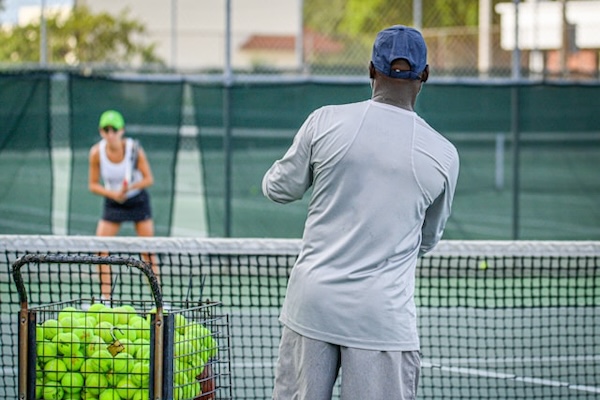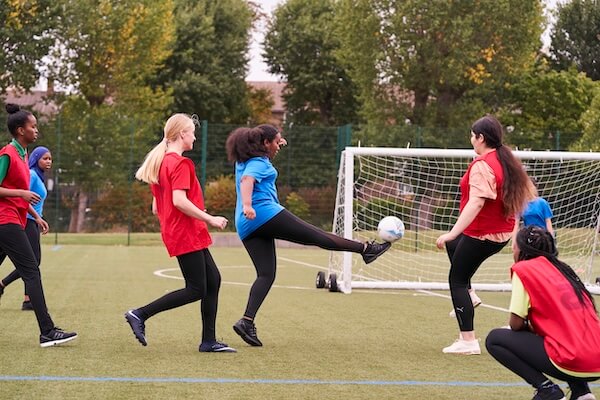
Research Confirms: Staying Active Builds a Better Brain
Good news for Aussies looking to stay sharp as they age! A groundbreaking new study, recently published in the prestigious journal Nature Scientific Reports, has provided even more compelling evidence that keeping active is a key ingredient for brain health in midlife and older adults. This research isn't an isolated finding; it adds significant weight to a growing body of scientific evidence.
The research, led by Dr Alexandra La Hood from the School of Translational Medicine and Associate Professor Chris Moran from the School of Public Health and Preventive Medicine and the National Centre for Healthy Ageing, both at Monash University, analysed data from over 16,000 participants in the UK Biobank. What makes this study particularly robust is its use of objective measures: wrist-worn accelerometers to track physical activity and detailed MRI brain scans to assess brain volumes.
The Link is Clear: Move More, Think Better
The findings are incredibly encouraging. The study revealed that higher levels of physical activity are directly linked to healthier brain volumes. This includes larger total brain volume, as well as increased grey matter, white matter, and hippocampal volumes. These areas are crucial for various cognitive functions, including memory, learning, and overall brain processing. The study also observed fewer white matter hyperintensities, which are often considered markers of brain ageing.
What's particularly significant is that these benefits remained even after accounting for factors like Body Mass Index (BMI) and other cardiometabolic risk factors. While these factors do play a role in brain health, the study highlighted that physical activity offers an independent protective effect across several brain regions. This suggests that regardless of your weight, getting active is beneficial for your brain.
Associate Professor Moran highlighted that it has been unclear whether the positive effects of physical activity on brain health were impacted by a person's weight. "Our study found that although BMI, waist circumference and cardiometabolic risk factors were related to brain health (as determined by volume), greater physical activity remained independently associated with healthier brains," he noted.
Consistent with Previous Research: A Robust Scientific Picture
The results of this new study align with and strengthen findings from numerous previous research efforts over the years. This isn't a brand-new concept; rather, it's a further validation with cutting-edge data.
Older studies have consistently shown that physical activity positively impacts brain structure and function:
- Hippocampal Growth and Memory: Research, such as a landmark study by Erickson et al. (2011) published in PNAS, demonstrated that aerobic exercise can actually increase the size of the hippocampus, a brain region vital for memory, leading to improvements in spatial memory in older adults. This helped establish a causal link between exercise and brain change.
- Grey and White Matter Benefits: Studies like that by Colcombe et al. (2006) in The Journals of Gerontology, Series A, Biological Sciences and Medical Sciences, have shown that older adults engaging in aerobic exercise can experience increases in both grey and white matter volume in key brain areas. Grey matter is where much of our brain's processing happens, while white matter consists of the connections that allow different brain regions to communicate efficiently.
- Reduced Brain Ageing Markers: The observation of fewer white matter hyperintensities in the new study also resonates with prior research suggesting that physical activity may help mitigate these markers often associated with brain ageing and small vessel disease.
Why Does Physical Activity Help the Brain? The Mechanisms Are Clear
Researchers suggest that physical activity supports brain health through several well-understood biological pathways, consistent across various studies. Firstly, by improving overall cardiovascular health, it ensures a better blood supply to the brain, delivering essential oxygen and nutrients and efficiently removing waste products. Secondly, there appear to be direct biological effects. Exercise can promote the growth of new brain cells (neurogenesis) and strengthen connections between existing ones (synaptogenesis), particularly in memory-related areas. It also increases levels of crucial proteins like brain-derived neurotrophic factor (BDNF), which are vital for brain cell survival and growth, and helps reduce inflammation and oxidative stress, both of which can damage brain tissue over time.
This study reinforces what public health recommendations around the world have been advocating for years: regular physical activity is a vital tool in reducing the risk of dementia and maintaining cognitive function as we age. It's a powerful reminder that investing in your physical health is also investing in your mental well-being.
So, whether it's a brisk walk, a social sports game, or hitting the local gym, every bit of movement counts towards a healthier brain for your future.
References:
- La Hood, A., Lu, A., Than, S. **et al.** Associations between physical activity and brain structure in a large community cohort. Sci Rep **15**, 14518 (2025). https://www.nature.com/articles/s41598-025-04010-7
- Erickson, K. I., Voss, M. W., Prakash, R. S., Basak, C., Szabo, A., Chaddock, L., ... & Kramer, A. F. (2011). Exercise training increases size of hippocampus and improves memory. Proceedings of the National Academy of Sciences, 108(7), 3017-3022. https://www.pnas.org/doi/10.1073/pnas.1015950108
- Colcombe, S. J., Kramer, A. F., Erickson, K. I., Scalf, P. E., McAuley, E., Cohen, N. J., ... & Gordon, B. A. (2006). Aerobic exercise training increases brain volume in aging humans. The Journals of Gerontology Series A: Biological Sciences and Medical Sciences, 61(11), 1166-1170. https://academic.oup.com/biomedgerontology/article/61/11/1166/595058






